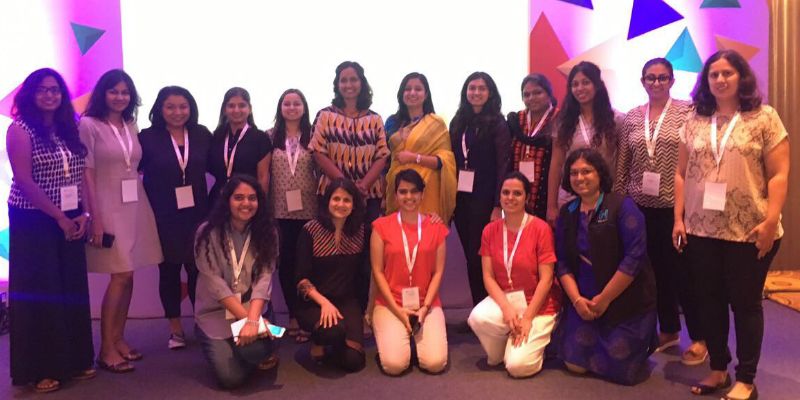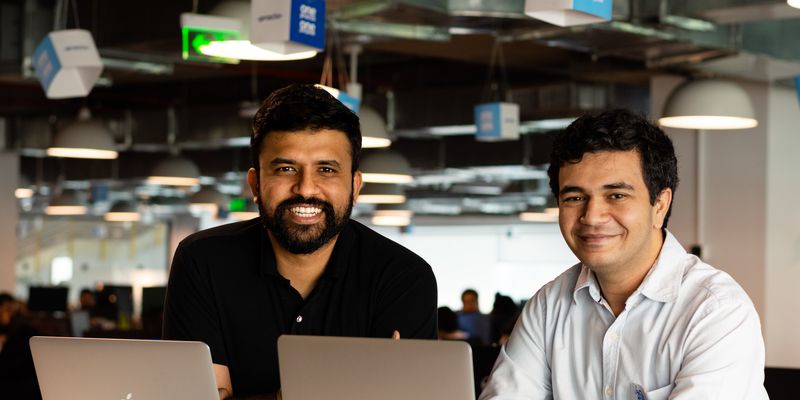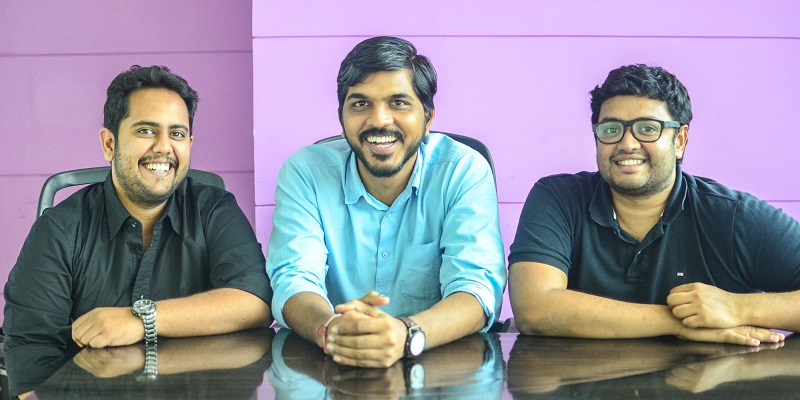11 women-led startups that made it to Google’s Launchpad Build
Google India recently shortlisted and provided guidance to 11 women-led startups in Bengaluru. But it wasn't an exclusive women-only event. Read on to know why and learn more about these startups.
As a part of Google’s Launchpad Accelerator programme, Google India recently hosted a Developers' Launchpad Build event in Bengaluru. Positioned as a leadership development programme, the event explored challenges of being a startup leader. Talking to YourStory, Paul Ravindranath, Program Lead for the Launchpad Accelerator programme said that Google has a universe of Launchpad programmes based on the lifecycle of a startup. He explained,
We look at the startup lifecycles as early, mid-stage and late. For those who have a MVP (early stage) and want to scale, we have a programme called Launchpad Start. Typically lasts for five days and everyday is focused on one form of mentorship. What is happening today is Launchpad Build.
Build involves startups that are a little more advanced, so the programme is of a shorter duration of two days. For startups that have found product-market fit and are looking to rapidly scale, Google has the more popular ‘Accelerator programme’, which involves technical mentorship, credits for Google products, equity-free support, among other benefits.

The key focus across all their programmes though is to help promising startups achieve progress in a short time through focused one-on-one mentorship from Google and industry experts. Areas of focus generally include product strategy, UX/UI, marketing and a special focus in technology covering Android/Firebase, Web, and Cloud.
With this edition of Launchpad, Google showcased its intention to support women entrepreneurs from startups across various stages. The programme was organised in collaboration with Google's Women Techmakers initiative and Google's Women@ programme and included some leadership workshops driven by Google as well.
Paul said that usually there aren’t enough women entrepreneurs applying for support and mentorship. But when one actually goes out and looks, there are a lot of women-led startups. Effective marketing is sometimes missing. So Google India’s focus is to facilitate more diversity and also assist women entrepreneurs to be part of these programmes. He said,
The goal is not to create exclusive women-only events. That sort of defeats the purpose. The goal is to find and discover great startups and help them go mainstream.
Here are 11 woman-led startups that were part of Build and received training from Google and industry experts.

1. Guvi Geek Network: Chennai-based Guvi positions itself as an online tech skill accelerator in vernacular languages. With its motto of ‘Learn in your native language’, Guvi seeks to help its users acquire new skills in a language that they are comfortable in.
2. Evibe Technologies: Based out of Hyderabad, Evibe.in is a tech-enabled party planner platform. Options available to customers range from a private farm birthday party to theme cakes for a wedding reception. Some of their ‘surprise’ offerings include ‘drone proposals’ and chauffeur-driven Audis.
3. PlexusMD: Based out of Ahmedabad, PlexusMD is an online professional network exclusive to doctors and healthcare organisations. The goal is to help doctors stay updated on the latest news and developments in their specialty by giving them access to more than 500 open access journals across the world. Doctors can also collaborate with their peers as well as find and apply for career opportunities. PlexusMD currently claims to have more than 80,000 doctors and 300 healthcare organisations on its platform.
4. Omnify: Based out of Bengaluru, Omnify positions itself as a new-age scheduling and ecommerce platform for small businesses that run schedule-based services. Its current focus areas include fitness, sports and wellness.
5. CampusTime: Based out of Bengaluru, CampusTime helps universities / colleges setup their private social network and enable students to connect with everyone on the campus and get access to part-time jobs and internships opportunities.
6. Fundamentor: Based out of Bengaluru, Fundamentor is an edu-tech startup that helps develop life skills to bridge the gap between academics and professional success. The platform claims to have more than 5,000 subscribers, 16,000 parent and user community and presence in urban and rural India as well as in Singapore.
7. Clinikk Healthcare: A personalised health concierge for blue-collar workers and their families, Clinikk’s Health Assistant aims to be the single point of contact for an entire family for any medical need. Clinikk starts off with a comprehensive health profiling of a family and then builds personalised health plans to constantly engage and support families to attain outlined health goals.
8. Talking Street: Based out of Bengaluru, Talking Street is positioning itself as a ‘local foodie friend’. It helps travelers and foodies experience and discover the most popular eateries that are frequented by local foodies (information that is not easy to get otherwise). The team notes that their content is highly curated (not listed) and created with the help of foodies in the 24 cities that they are live in.
9. PregBuddy: Bengaluru-based PregBuddy is positioning itself as a comprehensive health monitoring and concierge platform for women around the world. The goal is to provide personalised care via health experts and doctors, from pre-conception to their early years of motherhood. The goal is to give urban women, who are trying to conceive or are pregnant and recent mothers, personal care and knowledge to help them take informed decisions for them and their child.
10. LetsEndorse: Based out of Bengaluru, LetsEndorse is a social venture as well as a digital ecosystem of social innovations from across the globe that includes grassroots implementation partners/NGOs, responsible corporations, local administration and socially-savvy individuals. The goal is to enable intelligent knowledge harnessing of practicable social models, build collaborations for co-creating and scaling-up of solutions. One of the end goals is to foster mobilization of funds/resources from various stakeholders transparently for accelerated intervention.
11. Mishipay: Bengaluru-based MishiPay is a self-checkout technology for retail which allows customers in the store to pick up an item, scan the barcode on their phone, pay on the phone and walk out. If someone tries to leave without paying their patent pending technology powered by RFID immediately catches that and sounds the alarm. The goal is to reduce queue times and facilitate faster checkouts.











